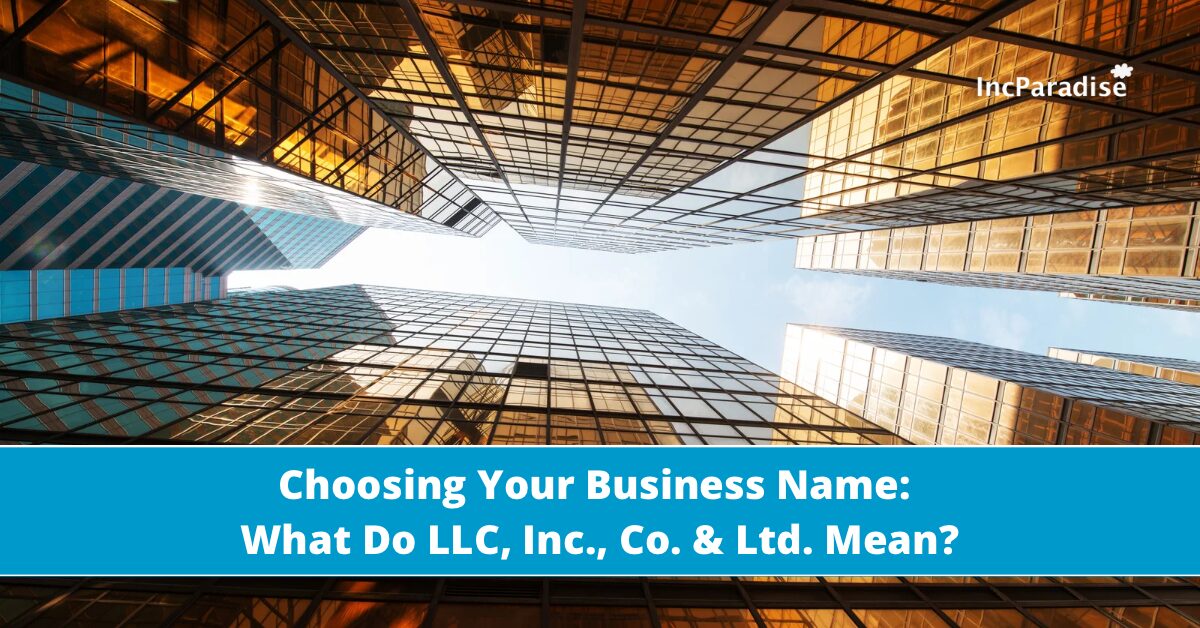Starting a business is a major decision that involves many considerations, including choosing the correct business entity. The business entity or structure that you choose will affect many aspects of your business, such as taxation, liability, and management structure. Therefore, it is essential to understand the various types of business entities available and select the one that best suits your business.
In this article, we’ll discuss the different types of business entities and their advantages and disadvantages, as well as the factors that startups should consider when they choose a business entity. Let’s start by knowing what a business entity or structure is and how it can affect your business.

Business Structure or Business Entity
Understanding the various types of business structures or entities is crucial for entrepreneurs and business owners as it can significantly impact their legal, financial, and operational obligations. Let’s start by knowing what a business entity or structure is and how it can affect your business.
What is a Business Entity?
A business entity is a legal structure that defines how a business operates, is taxed, and distributes its profits. The four most common types of business commodities are sole proprietorship, partnership, limited liability company (LLC), and corporation. The choice of business entity determines the liability of the owners and the ability to raise capital. Startups must choose the most appropriate business entity that serves their markets and objectives.
When it comes to small business entity selection, there is no one-size-fits-all solution. Each business structure has its own pros and cons, and the choice depends on your business’s unique characteristics, including your industry, size, and growth objectives. For example, if you are starting a small business and want to keep things simple, a sole proprietorship or a partnership might be the best option.
However, if you are planning to raise capital and overgrow, a corporation or a limited liability company (LLC) might be more suitable. Let’s understand the importance of choosing an appropriate entity for your business in detail.
Types of Business Entities/Structure
There are several different types of business structures, each with its own unique advantages and disadvantages. In this discussion, we will explore the most common types of business entities or structures
Sole Proprietorship
A sole proprietorship is the most straightforward sort of business entity, where a single person owns and operates the business. It means the company is not a separate legal entity, and the owner is personally liable for all business debts and obligations. Sole proprietorships are comfortable to establish and manage, making them famous for incorporating a startup and small businesses.
When we talk about the advantages and disadvantages of it, a sole proprietorship is a simple and low-cost option for startups. It provides complete control and tax benefits to the owner. However, the owner is personally accountable for all business obligations and may have limited access to funding and growth opportunities. As the business grows, the workload and responsibilities of the owner may also become overwhelming. Ultimately, the decision to choose sole proprietorship should be based on the needs and circumstances of the business and the owner’s preferences.
Sole proprietorships are commonly found in service-based industries, such as consulting, freelance writing, or graphic design. Other examples include small retail businesses, home-based businesses, and local shops or restaurants. Startups that are just beginning and have a limited budget may opt for a sole proprietorship since it requires fewer legal formalities and administrative responsibilities.
Partnership
A partnership is a business entity where two or more people share ownership and profits. Alliances are easy and relatively inexpensive to set up, as they require minimal paperwork and legal fees.
One of the primary advantages of partnerships is that partners can share the workload and responsibilities of the business, allowing each partner to focus on their area of expertise. Partners can also pool their resources, knowledge, and skills to achieve a common goal. Another advantage of partnerships is that there is no separate tax return required. The gains and losses of the company are passed through to the partners’ personal tax returns, simplifying the tax filing process.
However, partnerships also have some disadvantages that startups should consider. Partners are personally liable for all business debts, meaning their assets may be at risk in case of financial difficulties. Conflicts can also arise between partners, especially if they have different visions or expectations for the business. Disagreements over decision-making, responsibilities, and profits can strain the relationship and threaten the company’s success. Partnerships may also have limited ability to raise funds, as partners cannot sell shares or equity in the business. It can make it challenging to finance growth and expansion and may limit the partnership’s potential for long-term success.
Examples of businesses that might choose a partnership include law firms, accounting firms, and creative agencies.
Limited Liability Company (LLC)
A limited liability company (LLC) is a flexible business entity that combines a corporation’s liability protection with a partnership’s tax benefits. An LLC formation for a startup can be a good choice. It offers limited personal liability for business debts and pass-through taxation. It also has a flexible management structure. However, setting up and maintaining an LLC is more complex and costly than a sole proprietorship or partnership. Additionally, LLCs have limited ability to raise funds.
In conclusion, LLCs can benefit startups due to the limited personal liability and pass-through taxation. However, setting up and maintaining an LLC can be more complex and costly than other business structures, and LLCs may have limited ability to raise funds. Startups should carefully evaluate their specific requirements and plans before forming an LLC.
Examples of businesses that might choose an LLC include real estate investment firms, creative agencies, and tech startups.
Corporation
A corporation is a separate legal entity owned by shareholders and managed by a board of directors. Corporations are a famous business structure that offers several advantages, including limited personal liability for business debts, the ability to raise funds through the sale of stock, and perpetual existence. Shareholders are only liable for the amount of their investment and their personal assets are protected from business debts. Corporations can also raise funds by selling stocks, which can provide the capital needed for growth and expansion. Additionally, corporations have perpetual existence, meaning that they can continue to exist even after the death of a shareholder.
However, corporations are more complex to set up and maintain than other business structures and require significant paperwork and legal fees. Corporations are also subject to double taxation, meaning that profits are taxed at the corporate level and again when distributed to shareholders as dividends. Corporations also have a more formal management structure, which can limit the flexibility and creativity of the organization.
Examples of businesses that might choose a corporation include large tech companies, multinational corporations, and publicly traded companies.
Importance of Choosing the Right Business Entity for a Startup
Choosing a suitable business entity is crucial for startups because it affects many aspects of the business, including taxes, liability, management structure, and fundraising needs. The proper business entity can help startups protect their personal assets, reduce tax liability, and facilitate their operations and growth.
One of the main benefits of a business entity is that it provides a legal shield to the owners. It means that the owners are not personally responsible for any debts or legal issues incurred by the business. For instance, if a customer sues the company, the owner’s personal assets are protected, and only the business assets are at risk. It can provide a sense of security to the owners and help them make strategic decisions without worrying about personal liabilities.
Furthermore, choosing the fitting business entity can help startups raise capital. A corporation, for example, can issue stock and raise funds from investors. In contrast, a sole proprietorship has limited options for raising funds. The choice of business entity can also have an impact on the ability to attract customers and partners. However, a limited liability company (LLC) can give the impression of a professional and credible business, which can help attract customers and partners.
Comparison of Business Entities
Each business entity has its own unique advantages and disadvantages in terms of liability protection, taxation, management structure, and other factors. Here’s a comparison of the four business entities discussed:
Liability Protection
- Sole Proprietorship: Unlimited personal liability
- Partnership: Unlimited personal liability
- LLC: Limited personal liability
- Corporation: Limited personal liability
Taxation
- Sole Proprietorship: Pass-through taxation
- Partnership: Pass-through taxation
- LLC: Pass-through taxation
- Corporation: Double taxation
Management Structure
- Sole Proprietorship: The owner has complete control
- Partnership: Shared responsibilities and workload
- LLC: Flexible management structure
- Corporation: The board of directors manages the business
Other Factors
- Sole Proprietorship: Easy and inexpensive to set up
- Partnership: Easy and affordable to set up
- LLC: More complex to set up and maintain
- Corporation: More complicated to set up and maintain
Factors to Consider When Choosing a Business Entity
When choosing a business entity, startups should consider several factors, such as liability, taxation, management structure, and fundraising needs. When selecting a business entity, startups need to consider several key factors. Firstly, liability is an essential consideration as it determines the level of personal responsibility that the owner is willing to assume for business debts and lawsuits.
However, taxation is another factor to consider as it affects how the business is taxed and the tax implications of each entity. The preferred management structure and ownership style should also be evaluated as it impacts the organization’s governance and decision-making process.
Ultimately, startups must determine their fundraising needs and assess the availability of various funding sources to meet those needs. Careful evaluation of these factors will help startups select the most suitable business entity for their business needs.
Ready to Choose the Right Business Entity for Your Startup? Let IncParadise Help!
Choosing a suitable business entity can be daunting, especially for new entrepreneurs. That’s where IncParadise comes in. We offer expert guidance and affordable pricing to help startups choose the correct business entity and register their business hassle-free. Our services include LLC formation, corporation formation, registered agent services, mail forwarding, and annual report filing. Visit our website or contact us directly for more information.








